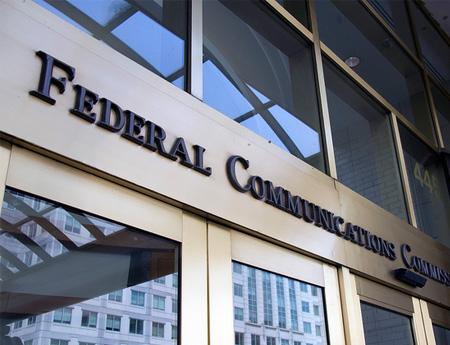Group to FCC: Avoid ‘Walled-Garden’ Approach to Video
The smarter way to stay on top of the multichannel video marketplace. Sign up below.
You are now subscribed
Your newsletter sign-up was successful

The FCC’s pursuit of a successor to the CableCARD continued to heat up this week as a group comprised of Google, Amazon, Public Knowledge, TiVo and others warned the Commission that putting too fine a focus on downloadable security without addressing the greater goal of furthering the competitive availability of set-tops and other navigation devices “would result in a walled-garden approach.”
Members of the group (see below for the full list) addressed their concerns in a letter to members of the FCC Media Bureau on May 11, ahead of the next scheduled meeting of the FCC-appointed Downloadable Security Advisory Committee (DSTAC), set for this Wednesday (May 13).
The DSTAC, comprised of 18 individuals, was formed in January after the STELAR Act became law in December 2014, activating a provision that will sunset the FCC’s current ban on set-tops with integrated security after a year. The DSTAC is slated to file its recommendations to the FCC by September 4.
“The FCC Media Bureau staff’s efforts in coordinating and overseeing the DSTAC should continue to further the Congressional directives in Section 629,” the group wrote in the May 11 letter. “In particular, any solution recommended by DSTAC should ensure that device manufacturers can differentiate retail products from MVPDs’ leased products."
On that point, they said manufacturers should be able to provide innovative and distinctive features, including unique user interfaces, enhanced search functionality, and improved means for recording and viewing content consistent with copyright law. They also said users of retail devices should be able to access the full complement of MVPD video service offerings, while also being able to pick between “premium devices with advanced functionality” as well as “simpler, lower cost devices according to their preference.”
“The DSTAC should achieve a recommendation that functionally supersedes the CableCARD, without a need for the CableCARD hardware,” they added.
A different group comprised of MVPDs, vendors and cable industry organizations, including several members of the DSTAC, issued a letter of their own last month that outlined concerns they have about the scope, direction and “policy detours” being made by a FCC-appointed committee.
The smarter way to stay on top of the multichannel video marketplace. Sign up below.
That group also argued that the DSTAC was being steered into developing a method by which an MVPD’s retail offering would be “disassembled into individual piece parts” that a retail device maker could then selectively reassemble into a new configuration and service.
They also claimed that FCC staff had proposed the DSTAC to define “non-security APIs,” to access these piece parts of the service, arguing that those proposals likewise “hark back to the ‘AllVid’ concept,” whereby pay-TV providers would need to deploy a separate adapter that would “enable a retail device to disassemble a provider’s retail subscription service for reassembly into a new service for commercial exploitation.”
The Free State Foundation echoed as much in this statement, also issued May 11, arguing that the FCC has charged the DSTAC with a task that “strays from Congress’s mandate for a report on downloadable security for next-generation devices… Requiring DSTAC to develop methods for disaggregating bundled video programming and menu contents are outside the scope of STELAR's mandate. Congress directed the FCC's Chairman to establish a working group focused on a ‘downloadable security system.’”
The group represented by Google, TiVo and Public Knowledge said the committee must dig deeper.
“Limiting the DSTAC’s scope to downloadable security alone, without reference to the committee’s broader mandate of furthering the competitive availability of navigation devices, would result in a walled-garden approach that does not promote the vigorous competition and innovation envisioned by Section 629,” they wrote.
The May 11 letter to the FCC Media Bureau’s William Lake, Brendan Murray and Nancy Murphy was signed by the following:
- Matthew Clark, Amazon (DSTAC member)
- Gary Hammer, Ceton Corp.
- Daniel O’Connor, Computer & Communications Industry
- Angela Kronenberg, Comptel
- Matt Wood , Free Press
- Milo Medin, Google (DSTAC member)
- Brad Love, Hauppauge (DTAC member)
- Abigail Slater, The Internet Association
- Joshua Goldberg, Open Technology Institute at New America
- Adam Goldberg, Public Knowledge (DSTAC member)
-Theodore Head, Silicondust USA
- Dr. Joseph Weber, TiVo (DSTAC member)
- Ellen Stuzman, Writers Guide of America, West
